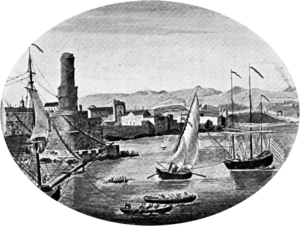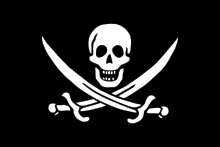“Punting the Pundits” is an Open Thread. It is a selection of editorials and opinions from around the news medium and the internet blogs. The intent is to provide a forum for your reactions and opinions, not just to the opinions presented, but to what ever you find important.
Thanks to ek hornbeck, click on the link and you can access all the past “Punting the Pundits”.
Follow us on Twitter @StarsHollowGzt
New York Times Editorial: The Message From Wisconsin
When Gov. Scott Walker moved to strip Wisconsin public employees of their collective-bargaining rights last year, a few weeks after taking office, it was clear that he wasn’t doing it to save the state money. If that had been the case, he would have accepted the unions’ agreement to pay far more in health care and pension costs. His real goal was political: to break the unions by demonizing their “bosses,” ending their ability even to collect dues and removing them as a source of money and energy for Democrats.
On Tuesday, as Mr. Walker easily fought off a recall by a 7-point margin over his challenger, it became clear just how effective that strategy has been.
To start, labor failed to nominate its preferred candidate last month to run against Mr. Walker. Instead, Democrats chose Mayor Tom Barrett of Milwaukee, who then barely talked about collective-bargaining rights, sensing it would not help him. Nearly a third of union voters (presumably from private-sector unions) voted for Mr. Walker, exit polls showed, as did nearly half of voters from union households who were not union members.
Randall Fuller: Paralysis in Athens
“WHAT are we waiting for, assembled in the forum?” asked the Greek poet Constantine Cavafy in 1904. “Why do the Senators sit and pass no laws?”
Less than two weeks before Greece holds another round of national elections, Cavafy’s famous poem “Waiting for the Barbarians,” has renewed force and urgency in Athens. The elections, scheduled for June 17, will decide Greece’s fate in the euro zone and perhaps even its long-term future as a viable state. But with an excruciating choice to be made between draconian austerity measures and a departure from Europe’s shared currency, the birthplace of democracy is paralyzed with indecision and poised to descend into chaos and economic catastrophe.
Evidence of a state tottering on the edge of complete dysfunction is apparent everywhere in Athens. Traffic signals work sporadically; a sign giving the shortened hours of one of the world’s great museums, the National Archaeological Museum, is haphazardly taped to the door; police officers in riot gear patrol the perimeters of the universities, where a growing population of anarchists, disaffected young people and drug addicts congregate in communal hopelessness.
On, Wisconsin! Or so it was meant to be with a union-led recall in the home state of Robert “Fighting Bob” La Follette Sr., the populist governor and senator who once shaped the cry for anti-corporate social justice in this nation. After La Follette there was the Wisconsinite William Proxmire, the great conscience of the U.S. Senate, followed by the equally impressive Russ Feingold, who, despite being exactly correct in warning of the consequences of unfettered banking greed, was turned out by Wisconsin voters in 2010. Perhaps if the original McCain-Feingold legislation-gutted by the Supreme Court-was still the law of the land on campaign finance, the Democrats and their union base would have survived Tuesday’s election.
Certainly that is the excuse provided by what remains of the liberal media, which point to the lopsided advantage in funding for Wisconsin Gov. Scott Walker and to the high court’s Citizens United ruling in seeking reasons for this “billionaire’s victory” over “people power.” But the larger truth is that the spirit of populism has been perverted by the Republican tea party right and that Democrats are left defending government bureaucracy while remaining incapable of responding to America’s widespread economic pain.
Amy Goodman: It’s One Person, One Vote, Not 1 Percent, One Vote
The failed effort to recall Wisconsin Gov. Scott Walker is widely seen as a crisis for the labor movement, and a pivotal moment in the 2012 U.S. presidential-election season. Walker launched a controversial effort to roll back the power of Wisconsin’s public employee unions, and the unions pushed back, aided by strong, grass-roots solidarity from many sectors. This week, the unions lost. Central to Walker’s win was a massive infusion of campaign cash, saturating the Badger state with months of political advertising. His win signals less a loss for the unions than a loss for our democracy in this post-Citizens United era, when elections can be bought with the help of a few billionaires.
The voters of Wisconsin did return control of the state Senate to the Democratic Party. The new majority will have the power to block the type of controversial legislation that made Walker famous. Meanwhile, three states over in Montana, the Democratic state attorney general, Steve Bullock, won his party’s nomination for governor to run for the seat held by term-limited Democrat Brian Schweitzer. Bullock, as attorney general, has taken on Citizens United by defending the state’s 100-year-old corrupt-practices act, which prohibits the type of campaign donations allowed under Citizens United. The case is now before the U.S. Supreme Court.
Wisconsin’s recall is over, but the fight for democracy starts with one person, one vote, not 1 percent, one vote.
Joe Conanson: Silent Running: The Burgeoning Wisconsin Scandal That Major Media Ignored
If the Wisconsin recall is truly second in importance only to the presidential race, as many media outlets have trumpeted lately, then why have those same outlets so badly neglected one of that election’s most salient aspects?
As millions of dollars in dark right-wing money pour into the state to preserve Gov. Scott Walker from his progressive opposition, it seems relevant that he and many top aides are under investigation in a campaign finance and corruption scandal that has been growing for two years.
Yet the national media have largely ignored the fascinating details of that probe-which has already resulted in indictments, convictions and cooperation agreements implicating more than a dozen Walker aides and donors. Only readers of the local newspapers in Madison or Milwaukee would know, for instance, law enforcement documents have emerged in court during the past few days suggesting that Walker stonewalled the investigation in its initial phase.
Richard Reeves: Country For Sale
The word “takeaway” was first used in 1961, according to the Merriam-Webster Dictionary. And then it was about Chinese restaurants. Now it is about everything, including elections.
“Three Takeaways From the Recall Vote” was the headline over the election analysis of Sean Trende, the senior election analyst of Real Clear Politics.
On Politico.com, the headline over Glenn Thrush’s analysis was, “Only One Takeaway From Wisconsin: Money Shouts.”
Trende, a great name for a political writer, began his piece on Wisconsin Gov. Scott Walker’s surviving a recall election by saying that the results don’t tell us much about 2012. He argued that special elections are poor predictors of general elections, particularly presidential elections. This one, he said, was about one governor, one state, one issue-that is, Walker’s attempt to reduce the pay and benefits of unionized state employees. He cited exit polling that indicated most voters believe that recalls should be used only in cases of corruption.


 Port Royal provided a safe harbour initially for privateers and subsequently for pirates plying the shipping lanes to and from Spain and Panama. Buccaneers found Port Royal appealing for several reasons. Its proximity to trade routes allowed them easy access to prey, but the most important advantage was the port’s proximity to several of the only safe passages or straits giving access to the Spanish Main from the Atlantic. The harbour was large enough to accommodate their ships and provided a place to careen and repair these vessels. It was also ideally situated for launching raids on Spanish settlements. From Port Royal, Henry Morgan attacked Panama, Portobello, and Maracaibo. Roche Brasiliano, John Davis (buccaneer), and Edward Mansveldt (Mansfield) also came to Port Royal.
Port Royal provided a safe harbour initially for privateers and subsequently for pirates plying the shipping lanes to and from Spain and Panama. Buccaneers found Port Royal appealing for several reasons. Its proximity to trade routes allowed them easy access to prey, but the most important advantage was the port’s proximity to several of the only safe passages or straits giving access to the Spanish Main from the Atlantic. The harbour was large enough to accommodate their ships and provided a place to careen and repair these vessels. It was also ideally situated for launching raids on Spanish settlements. From Port Royal, Henry Morgan attacked Panama, Portobello, and Maracaibo. Roche Brasiliano, John Davis (buccaneer), and Edward Mansveldt (Mansfield) also came to Port Royal.
Recent Comments